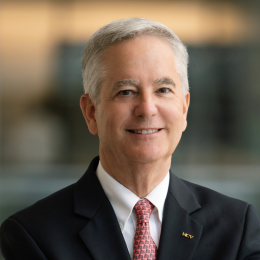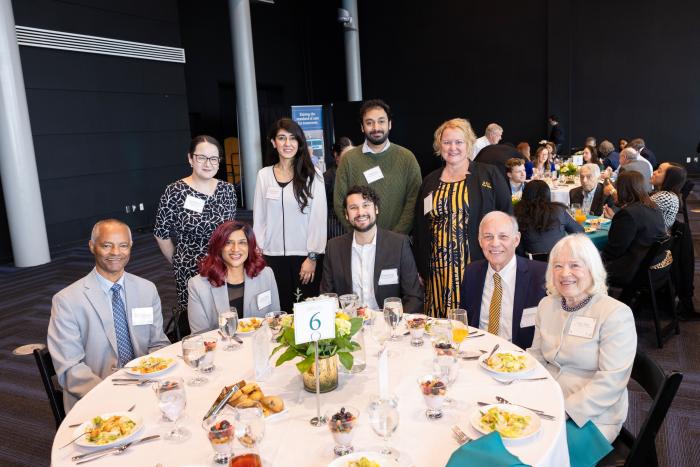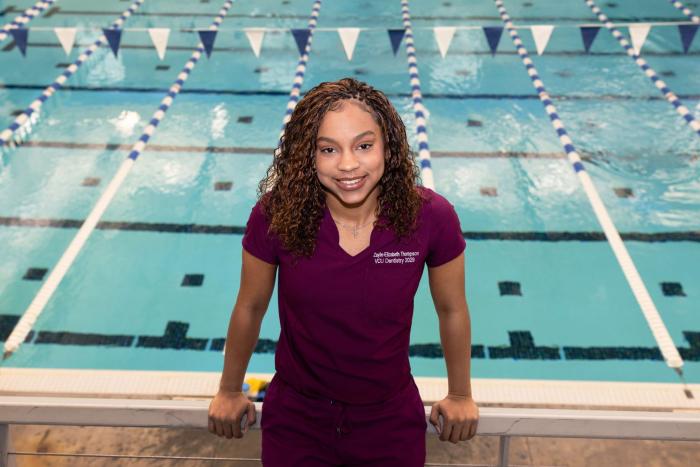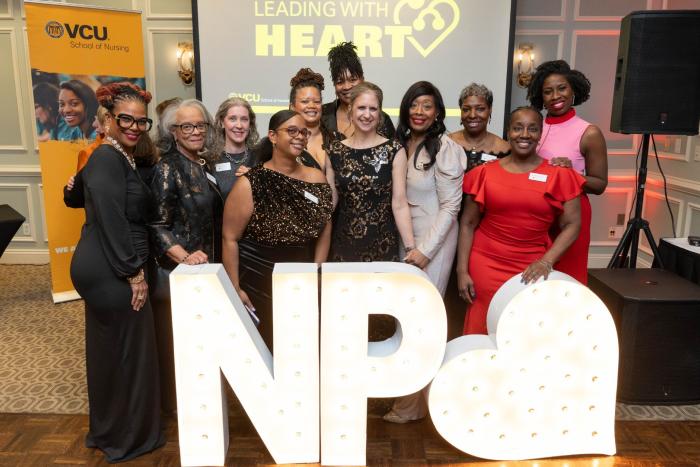Fighting Back: Medical Student Targeting Cancer
In 2009, Seth Spencer underwent surgery to replace his right hip. In 2012, he had his other hip and both knees replaced — he was just 23 years old.
Seth’s joint deterioration was a side effect of a bone marrow transplant he received five years earlier to treat acute lymphoblastic leukemia (ALL).
“When you’re younger and you’re diagnosed it really changes how you live the rest of your life,” he told us recently.
That change has been difficult for Seth because even though his leukemia has gone into remission, the side effects and surgeries will continue to affect his activities and behavior for the rest of his life.
But that change also has been empowering.
“I’ve been given an opportunity to have my life, and because of this I want to look for ways that I can help others,” he said.
Seth, having completed his first year as a student at VCU School of Medicine, is staying on the MCV Campus this summer to begin his fight to ensure young people in the future won’t have to face what he did.
Finding a Research Fit
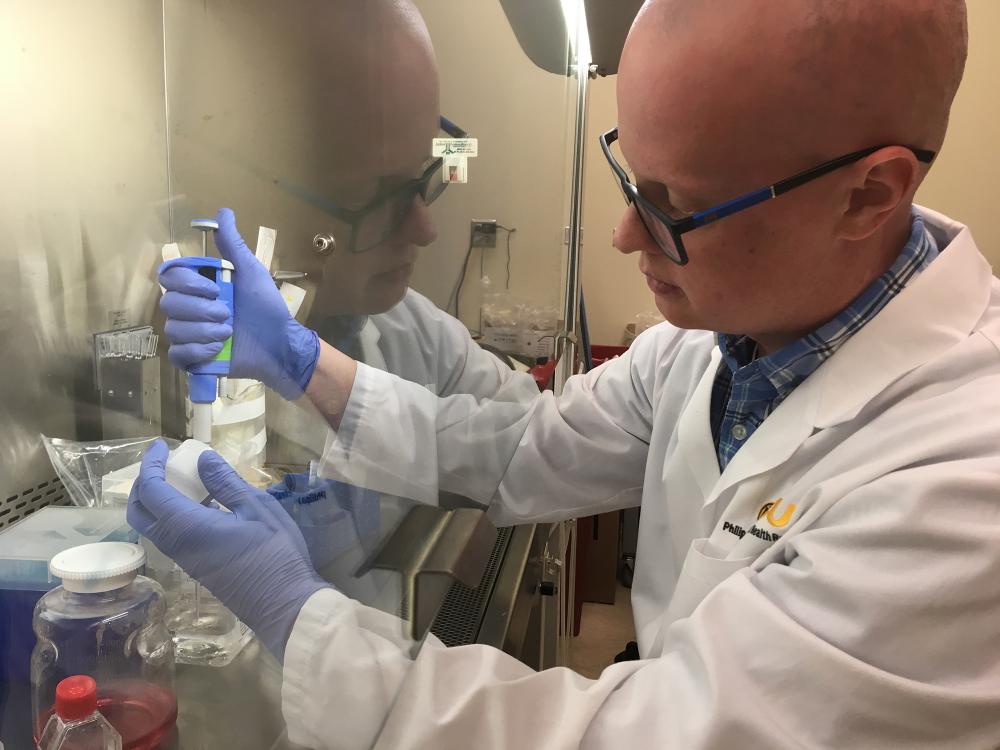 During orientation for first-year medical students last fall, Anthony Faber, Ph.D., assistant professor at the VCU School of Dentistry’s Philips Institute for Oral Health Research, presented his research on targeted therapy for ALL.
During orientation for first-year medical students last fall, Anthony Faber, Ph.D., assistant professor at the VCU School of Dentistry’s Philips Institute for Oral Health Research, presented his research on targeted therapy for ALL.
Seth was intrigued immediately because of his personal battle with ALL and because of that extra word Dr. Faber was using before therapy — “targeted.”
The American Cancer Society says targeted therapy “is a newer type of cancer treatment that uses drugs or other substances to more precisely identify and attack cancer cells.” When cancer cells are targeted directly, the treatment’s negative impact on other parts of the body can be greatly diminished.
When he arrived on the MCV Campus, Seth had already planned to find research to be a part of as soon as possible, and when he heard Dr. Faber speak he knew targeted therapy was what he wanted to pursue.
After attending several research meetings at Dr. Faber’s lab, Seth decided to apply for the James D. Popp Student Research Fellowship and pursue targeted therapy for diffuse intrinsic pontine glioma (DIPG). DIPG is a rare and fatal pediatric cancer that effects the brain stem.
“In the past, DIPG has been hard to research because the brain stem is so important for function,” Seth said. “If you have a tumor somewhere else they can take a sample of the tumor to start studying it, but it’s not as easy with DIPG.”
Dr. Faber helped Seth find the necessary DIPG tumor cell samples, which were shipped from California. Seth has now begun growing the cells in the lab and screening for proteins in the cells to see how they grow or die. He is researching which drugs make an impact on certain proteins, and that helps him identify possible targeting strategies for treatment.
“The idea is to find a treatment that affects just the tumor and not the whole body,” Seth said. “Proteins we target that are in the tumor are also in a patient’s body, but our hope is to find something like a protein that’s expressed 100 times more in the tumor than in the rest of the body. Attacking that protein then would have 100 times more effect on the tumor than the body.
“One thing that’s nice about these targeted therapies is that they don’t work the same way as chemotherapies do. The better one of these targeted therapies is, the better it focuses on just the tumor and not so much the patient.”
Supporting Student Research
Seth received this year’s James D. Popp Student Research Fellowship, which has been awarded each year since 2010 to a first-year VCU medical student. The stipend covers travel and living expenses while the recipient performs cancer-related research during the summer.
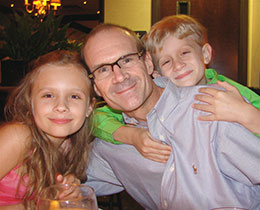
"The James D. Popp Student Research Fund was established in memory of an exceptional individual who died of cancer at age 45 in August of 2007," said Jack Haar, Ph.D. "Jim was a caring physician, athlete, friend, devoted husband and loving father of five young children."
Prior to and during the years Jim was a medical student at VCU, he worked in the research laboratory of Dr. Haar, a VCU professor of anatomy at the time.
In order to establish a living memorial to Jim, Dr. Haar established the James D. Popp Student Research Fund at the MCV Foundation. Dr. Haar and his son Philip then completed a 4,000 mile cross-country bicycle ride, RideForJim, in 2008 as a fundraising effort. Several other cyclists completed the ride and an annual local cycling event contributed to the fund until 2014.
The purpose of the fellowship is to support talented first-year medical students in completing cancer-related research at the Massey Cancer Center, with the hope that the experience will lead them to pursue a career that incorporates cancer research with patient care. Through the efforts of the riders and contributions from hundreds of family members and friends, the fund reached the point at which a $5,000 award has been made annually since the summer of 2010.
"Each year students apply for the Popp Fellowship and the selection committee determines who will receive the award," Dr. Haar said. “I am always amazed to see qualities of Jim in each awardee when I call them to my office to notify them of the award. This is especially true of this year’s recipient, Seth Spencer, who is doing research in an area that could have significant impact on the treatment of cancer. He truly is an extraordinary living memorial to my friend Jim.”
“I think everyone that goes through cancer ends up with a different experience, but I do feel like the experiences I had helped me understand a little bit more about what patients are going through,” Seth said. “What really speaks to me about research is finding something new that wasn’t known before. I think anyone that has cancer has a life-changing experience, so having a chance to make that experience more tolerable for others is an amazing opportunity.”
To learn more about fellowships that support student research on the MCV Campus and how you can contribute, contact Brian Thomas.
